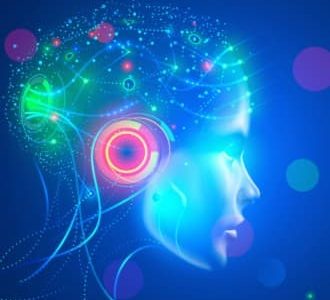In a world where stress and anxiety have become part of everyday life, people are increasingly turning to simple yet effective methods of restoring emotional balance. One such method is music. Not just entertainment or background noise, but a true therapeutic tool capable of influencing the psyche, body, and emotional state. In Portugal, where musical culture plays an important role in society, interest in music therapy is growing rapidly — not only among professionals, but also among ordinary people seeking ways to improve their quality of life.
What Is Music Therapy and Why Does It Work?
Music therapy is a scientifically recognized form of psychotherapeutic assistance that uses music in various forms (listening, singing, playing instruments, improvisation) to improve a person’s physical and psychological condition. It is used in hospitals, rehabilitation centers, schools, nursing homes, and even in corporate environments.
Research shows that music can activate specific areas of the brain associated with emotions, memory, and attention. When we listen to a favorite melody, dopamine — the pleasure hormone — increases in the body, while cortisol — the stress hormone — decreases. These are not abstract theories: the effect has been confirmed through MRI scans and biochemical analyses. Music helps slow down breathing, normalize heart rate, improve sleep, and reduce the sensation of pain. These effects are especially noticeable in people with chronic illnesses, anxiety disorders, and depression.
The Portuguese Context: Fado as a National “Sound Healer”
In Portugal, it is impossible to talk about the therapeutic power of music without mentioning fado. This genre, rich in emotion, longing, and romantic lyricism, performed with unique expressiveness, has long become not only a cultural symbol but also a means of emotional cleansing. Many Portuguese people note that listening to fado helps them “cry it out,” express what is difficult to put into words, and feel relief. It’s like collective psychotherapy — through sound, voice, and shared emotional vibration.
Modern researchers even consider fado an example of culturally conditioned music therapy. The sounds of the Portuguese guitar, slow rhythms, and rich intonations create a unique atmosphere in which a person can reframe their condition and release inner tension. And although fado is often based on sadness, it can evoke a sense of cleansing and hope.
Music and Physical Health: From Pain Reduction to Stroke Recovery
Beyond emotional impact, music plays a significant role in physical therapy. For example, in neurorehabilitation of stroke patients, rhythmic music helps restore motor coordination and even speech. Musical exercises stimulate neuroplasticity — the brain’s ability to adapt and recover lost functions. For children with autism, music therapy aids in developing communication skills and reducing anxiety. For elderly people with dementia, it helps improve short-term memory and stabilize behavior.
There is also growing interest in using music for pain management. In some hospitals in Europe and Portugal, patients listen to specially selected music during procedures, which allows for a reduced need for pain medications. Studies have shown that music decreases the perception of pain, improves overall condition, and accelerates recovery.
Music Therapy in Everyday Life
Interest in music therapy is not limited to clinical settings. More and more people in Portugal are incorporating music into their daily self-care practices. Morning meditation to the sounds of nature, relaxing playlists to relieve post-work tension, energizing music during workouts — all of these are forms of spontaneous music therapy available to anyone.
Some apps offer personalized music programs that adapt to the user’s mood and physiological parameters. This is especially relevant in the context of growing interest in mental health, particularly among the younger generation experiencing high levels of anxiety and emotional burnout.
In the educational sphere, music is also becoming a tool for developing emotional intelligence. In Portuguese schools and kindergartens, music sessions are increasingly held not only to develop hearing and memory but also to teach children emotional recognition and self-regulation.
The Future Belongs to Sound
Music as therapy is not a trend, but a scientifically grounded approach that will continue to grow and strengthen in the future. New research in neuroscience, psychology, and acoustics is uncovering more data on how exactly sound waves affect human biochemistry. Perhaps in the coming years, we will see the creation of “musical medicines” — specially composed audio tracks designed to treat specific conditions, from insomnia to depression.
Portugal, with its deep musical tradition, openness to innovation, and increasing focus on mental health, has every chance to become one of the leaders in integrating music into everyday therapeutic practice. And perhaps, in the near future, a visit to the therapist will begin not with questions, but with a playlist.














